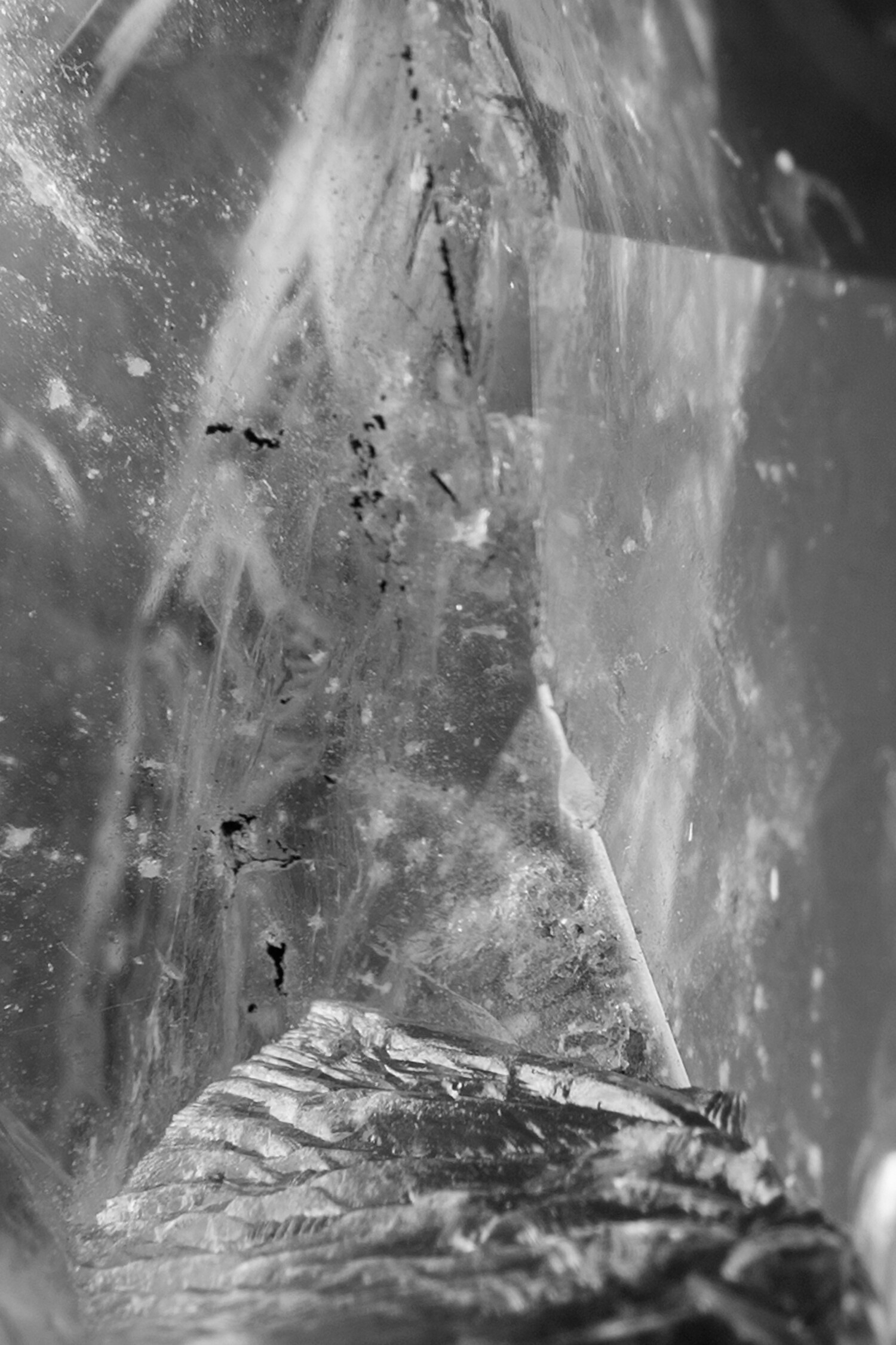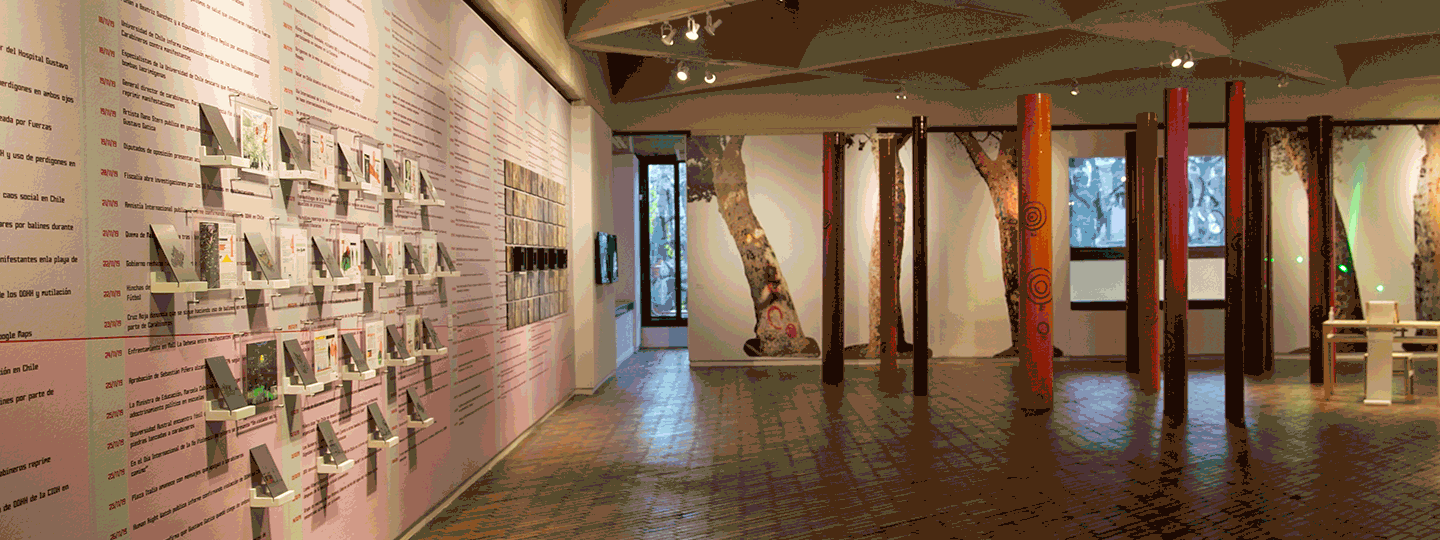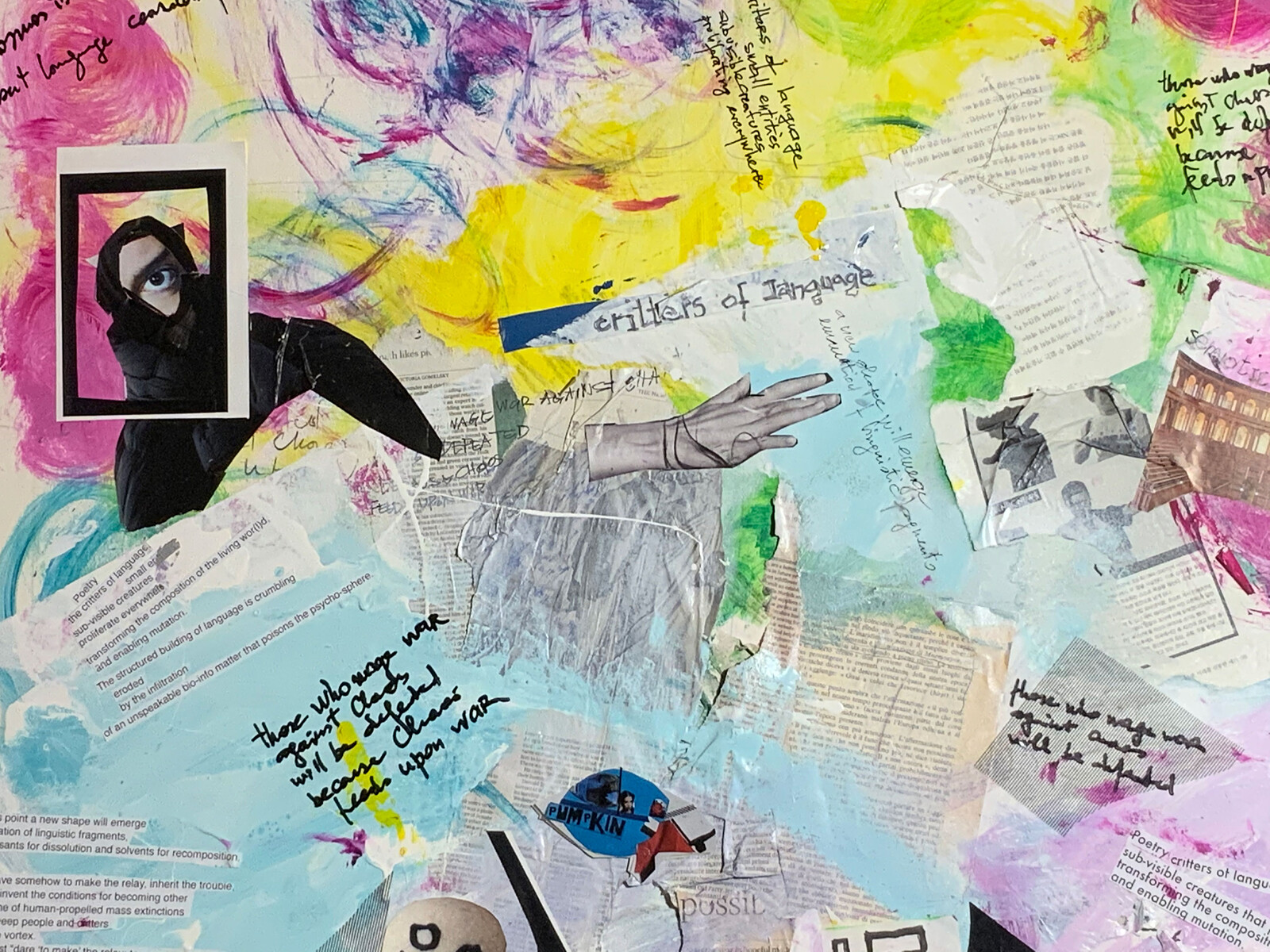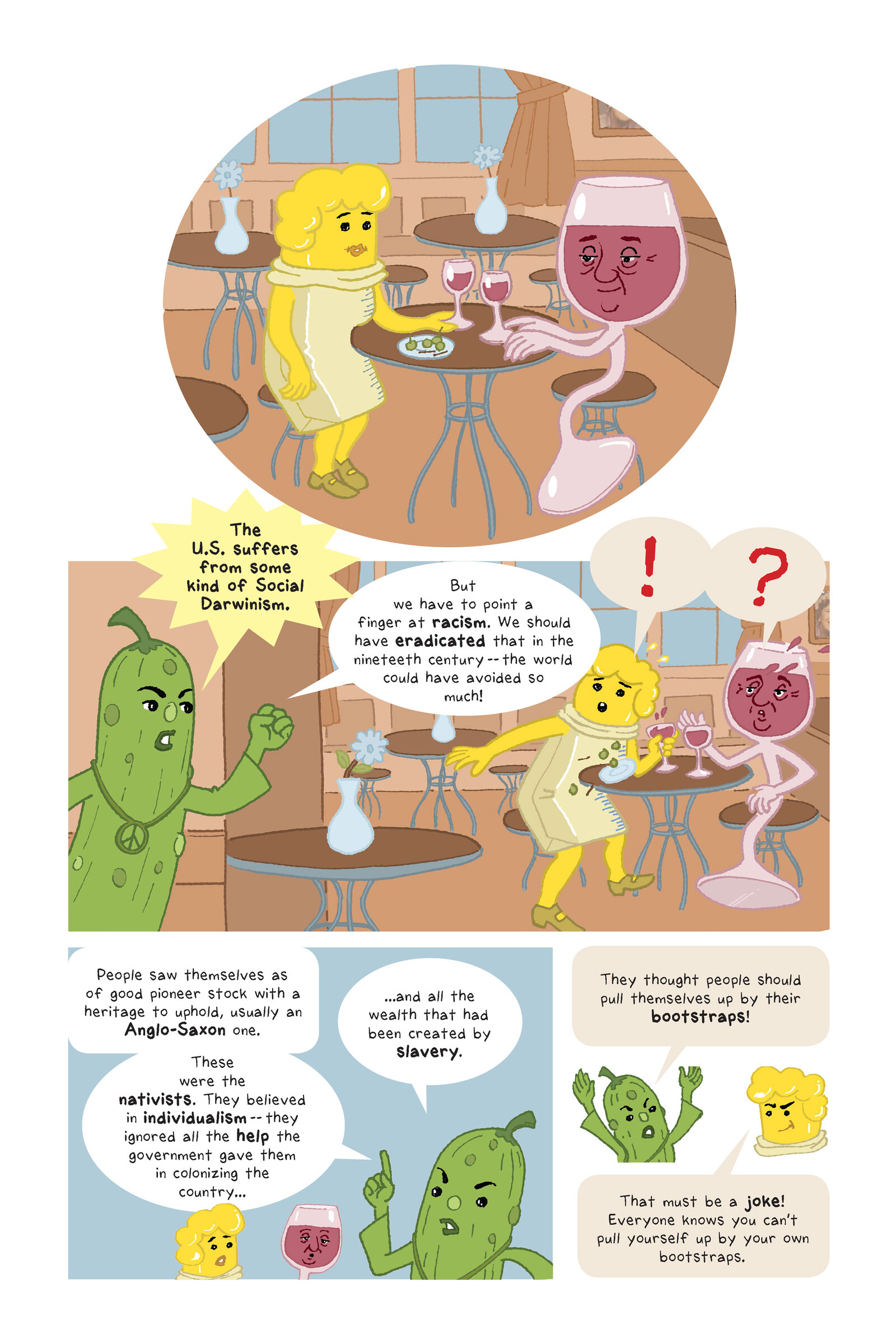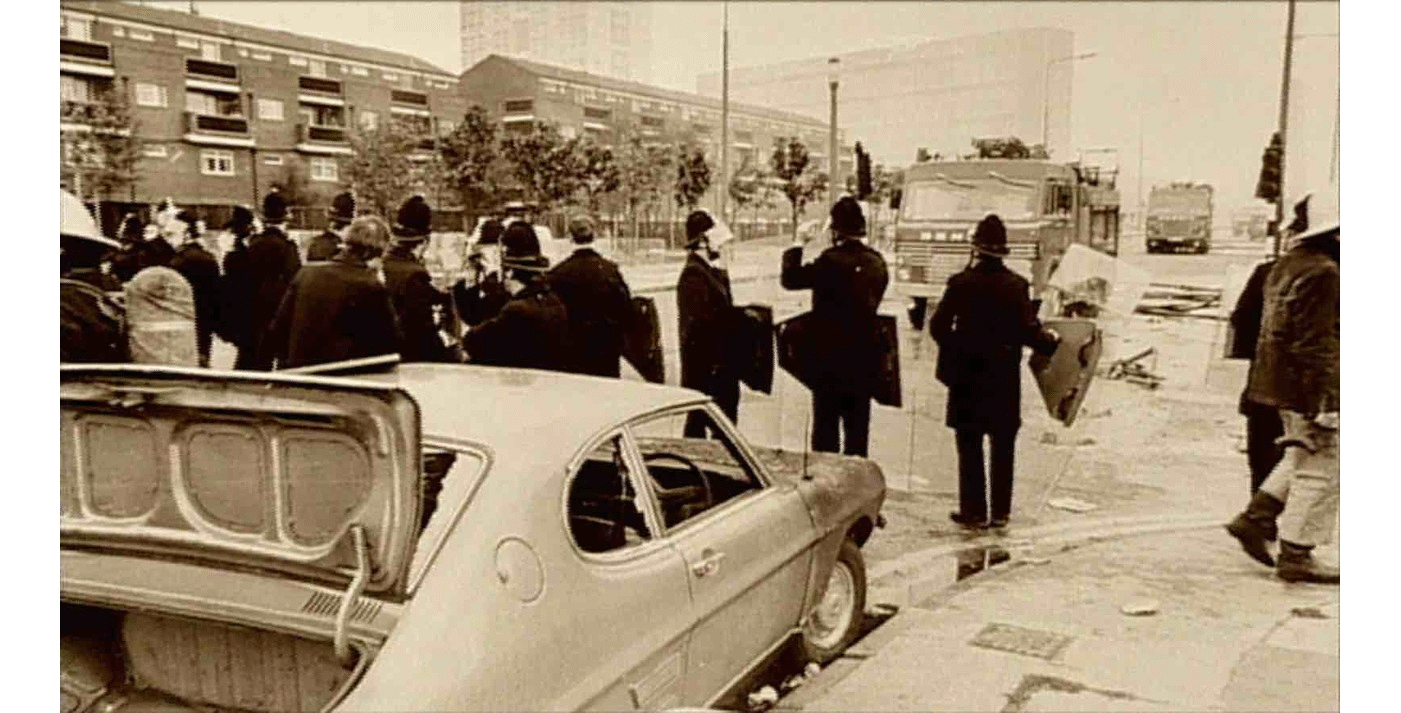I think the other word to add to “resonance” and “vignette” and “dirty,” would be “score.” All of those words in themselves form part of the score, and then they are the actual larger score of that score. “Momentum” should sound like a gallop, for example. We imagined our reader to be essentially always a listener. From the gallop, the noise starts to come in and take over, and in “vibration” you’re shaken into sounds. The idea is to feel each of the words as they join one another, but also how they live singularly; the word “vignette” is one way for us to think of how to metaphorically play with the traps of representation mobilized by words, categories, colonial forms. In doing so, we were also trying to think about the borderless, the leaking frame. Or, how do you leak out of the frame, how do you move beyond it? We really wanted the vignettes to be edgeless. What would this all mean in terms of tempering the collective ear?
How can we explain the fact that some anarchists and many other leftists are respecting health rules dictated by a “state of exception,” while fascists are the ones reclaiming their freedom to do whatever they like? There is a comedic exchange of roles, whereby fascists proclaim themselves as the “defenders of freedom” and progressives emerge as the defenders of the law.
Josh Neufeld and I have worked on this comic off and on for about a year, and its topicality and resonance have varied as we did so. In the run-up to publication, when hoarding and price gouging scarred the coronavirus pandemic response, the comic, as already written, seemed to pitch itself in one direction. But as we are about to go to press, with the comic still unchanged, a different question of justice is at stake: people’s right to demand justice and equal treatment as well as equal access to social goods under the law in every aspect of life. No justice, no peace.
